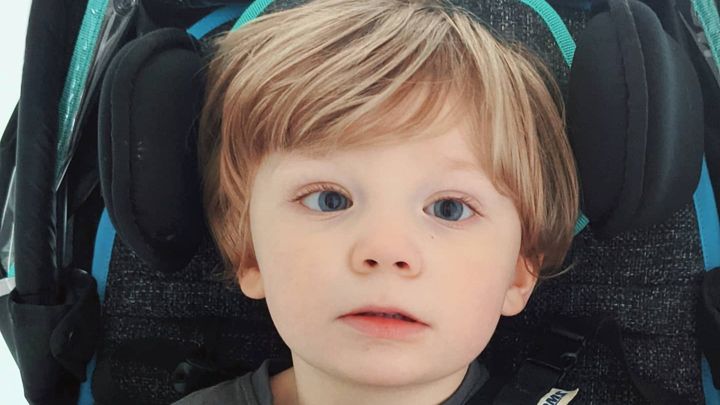
Help Arizona walk and talk!
Donation protected
Firstly, thank you for taking the time to visit our page. And hello - we’re the Gardner family. Mum, Deborah, dad, Adam and the star of the show, 2-year-old Arizona. We’re humbly asking for your help.
The highlights
Arizona has a rare condition called Septo-Optic Dysplasia (SOD), affecting around 1 in 10,000 people. He has many other medical conditions too, which are outlined in the full story below. He’s 2.5 years old and not yet able to sit up, stand, talk, or feed himself. This year, he’s begun biting himself out of frustration and head-banging incessantly, leaving him with bleeding and bruising, and lumps on his head.
We can’t go on with him like this. He deserves the chance to be able to talk and walk – and he is desperate to sit up on his own. But we have exhausted the therapies that the NHS can provide. We know from our NHS team and other specialists that there are many private therapies that could help Arizona meet his potential – such as specialised physiotherapy, music therapy, learning Makaton (sign language) and much more.
Arizona so desperately wants to communicate and gain some physical independence. If you’re able to help us give him a voice of his own and have a better shot at sitting up and standing, we would be so grateful for your contribution. We can’t tell you how much it means to us, so thank you.
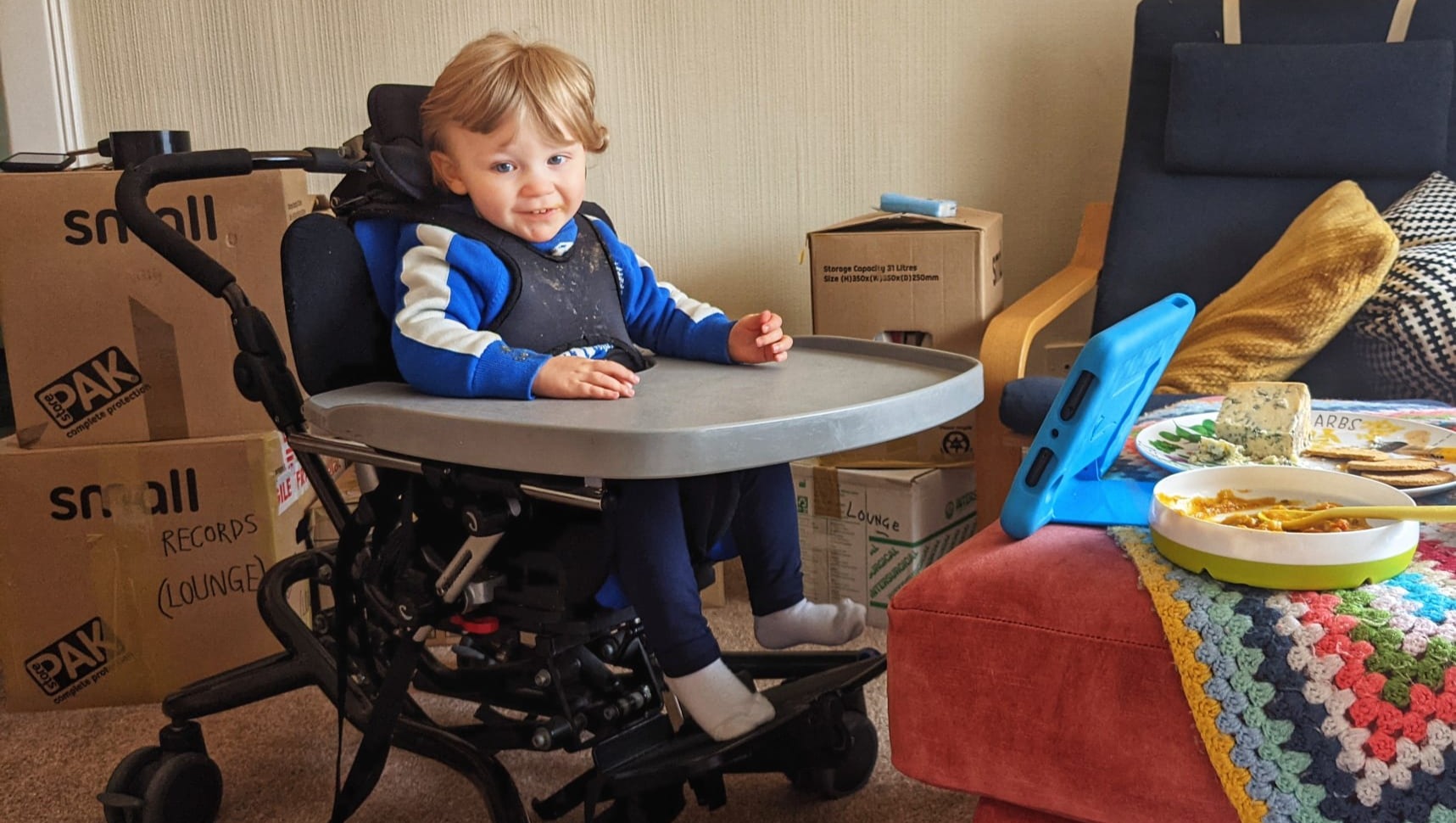
Our full story
When I was 32 weeks’ pregnant, we faced a moment all parents-to-be dread – a sharp intake of breath from the sonographer while they scan your belly, and a nervous smile that betrayed their attempt to keep us calm. That was Monday morning. The next day, we found ourselves packed off to London for an urgent MRI of my stomach. After the longest week of waiting for the results, we walked into the room, sat down and heard the awful words, ‘Mr and Mrs Gardner, the MRI wasn’t 'normal’. They found five major problems with his brain.
What followed were the most terrifying weeks of our lives. In and out of different hospitals, talking to paediatric neurologists, geneticists, consultants… We heard words like ‘significantly disabled’, ‘lifelong care’, ‘low chance of survival’ as we floated in and out of endless grey rooms, before being issued the ultimate blow: ‘If I were you, I would think carefully about ending this pregnancy’.
But we knew our boy was strong, from the constant karate kicks to my bladder, and the incredible MRI video of him wriggling around. We loved him. We made him. I grew him from scratch. Contemplating a life without him just wasn’t an option for us. We knew that even if he didn’t make it, we would have done all we could to give him the greatest chance at life. And at 39 weeks, our chunky little miracle was born. After a week in hospital under special care, we began our journey at home together.
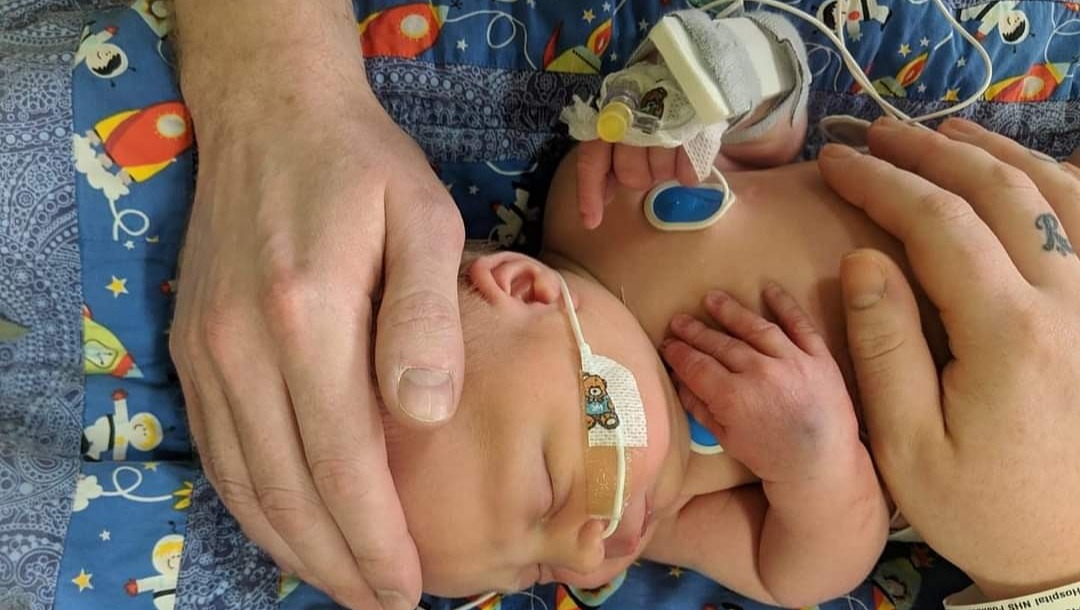
Fast forward to 2021
Arizona is now 2 and a half years old, and the most beautiful little soul. His laugh is magic and his smile worth working your butt off for! But Arizona has been given a diagnosis of Septo-Optic Dysplasia (SOD), a rare condition that affects around 1 in 10,000 people. To receive this diagnosis, a person must have at least two of three conditions: an abnormality that affects the middle of their brain, problems with their pituitary gland, and issues with the nerves behind their eyes. Arizona has the first two. He is missing his corpus callosum, a bridge of around 200 million electrical connections that link the two sides of your brain. And he has growth hormone deficiency, because his pituitary gland doesn’t work properly.
Arizona also has four other major abnormalities in his brain. And, as a result of his SOD, he has central hypotonia (low muscle tone in the middle of his body), global development delay, and sensory processing issues. Mentally, Arizona operates at around the level of a one-year-old (although he cannot talk yet), but physically, he is profoundly disabled. He is unable to sit up, stand, or walk without significant help from us and specialist equipment. Although it is likely he will rely on a wheelchair for the rest of his life, we are very hopeful he will be able to sit unassisted with time and intensive therapy. And it is vital we use equipment every day to help him get some standing time, as this prevents hip problems later in life – and simply gives him a different perspective on life, so he can enjoy some of the same activities as his peers.
How does this affect our daily life?
Arizona experiences and brings us great joy every single day. We adore him, and he gets a lot of satisfaction from reading books, playing with his toys, and having time in the garden. He takes four daily medications, including one injection, to manage his symptoms. And we have dedicated our living room to be a safe space for him to play, with the floor covered in thick mats. But as he grows, his mental and physical differences are becoming much clearer. His behaviour is getting more challenging for us, partly because he is frustrated at not being able to communicate his needs and partly because he is showing signs of being autistic. He also has significant sensory processing problems and very poor emotional regulation.
What does this mean in reality? A few things:
- Arizona does not sleep a great deal, and the sleep he does have is erratic. He will typically sleep around 8pm – 11pm, be awake for a few hours (as if it were the middle of the day), and from around 3am – 6am. He will not sleep anywhere but his own home, which means we can’t go elsewhere with him even for one night, for a change of scenery overnight
- Arizona requires daily therapies in order to achieve simple things that we take for granted, such as learning to feed himself, learning to talk and understand words, learning to sit up, stand, crawl etc., learning to brush his teeth and hold a water cup etc. We have had to become experts in his medical conditions and physical development, and spend a great deal of time managing his eight different specialists
- Arizona has frequent meltdowns each day, sometimes because he’s overwhelmed and sometimes because he can’t tell us how he’s feeling. These are much more violent than a normal toddler tantrum. You can read more about this via the Autistic Society. But worse, he self-injures a great deal by biting his skin until it bleeds and bruises, and head-banging on the hardest surfaces he can find. As a child with an already damaged brain, this is very worrying and is causing lumps to form where he’s banged his head so violently. He cries for hours on end, sometimes in the middle of the night. It’s not only distressing for him, but it’s very hard on our own mental health and we live in a constant state of hyper-vigilance
- Arizona has significant sensory processing difficulties and as such, constantly seeks stimulation and attention. Caring for him truly is a 24/7 job, given that he barely sleeps and when he is awake, always requires eyes on him so that he doesn’t endanger himself. Apart from the odd 30 minutes where he will stay calm and play on his mat, it is truly exhausting and frustrating
- Arizona gets very overwhelmed when we take him outside of our home. Simple things like going for a coffee, walking around the supermarket or even strolling at the beach can cause a meltdown. We can’t attend playgroups with him. We can’t spend a day at the beach. We often end up abandoning trips out or simply going out one of us at a time, while the other stays with Arizona. We just can’t do those regular things you dream about when you decide to start a family, and it means we all miss out
Why are we asking for help?
Our doctors thought Arizona might not even make it. Now he’s here, we want to give him the best possible chance of some independence in life. He has a life-limiting condition, so we are realistic about what is possible in his future. We think he has a good shot at sitting up unaided, but we know from his NHS physiotherapist and two private consultations that we have exhausted the therapies provided by the NHS. He will require intensive, non-traditional therapies if he has any hope of reaching this goal, and these don’t come cheap. They range anywhere from £80 - £130 per hour.
Additionally, Arizona’s behaviour is only getting more challenging – and the bigger he gets, the harder it is for us to keep him safe without the right equipment. Plus, he’s sleeping less and less, and our own health is suffering greatly as a result. We have both been hospitalised several times in the past 18 months and with no state respite provided (Arizona is deemed too young), we are reliant on family members and private babysitters for any break at all. We’re not alone - raising a disabled child and helping them meet their full potential costs a lot of money. The charity Contact estimates it costs £581 - £1,000 more per month to provide the same standard of living for a family with a disabled child, as a family with a non-disabled child.
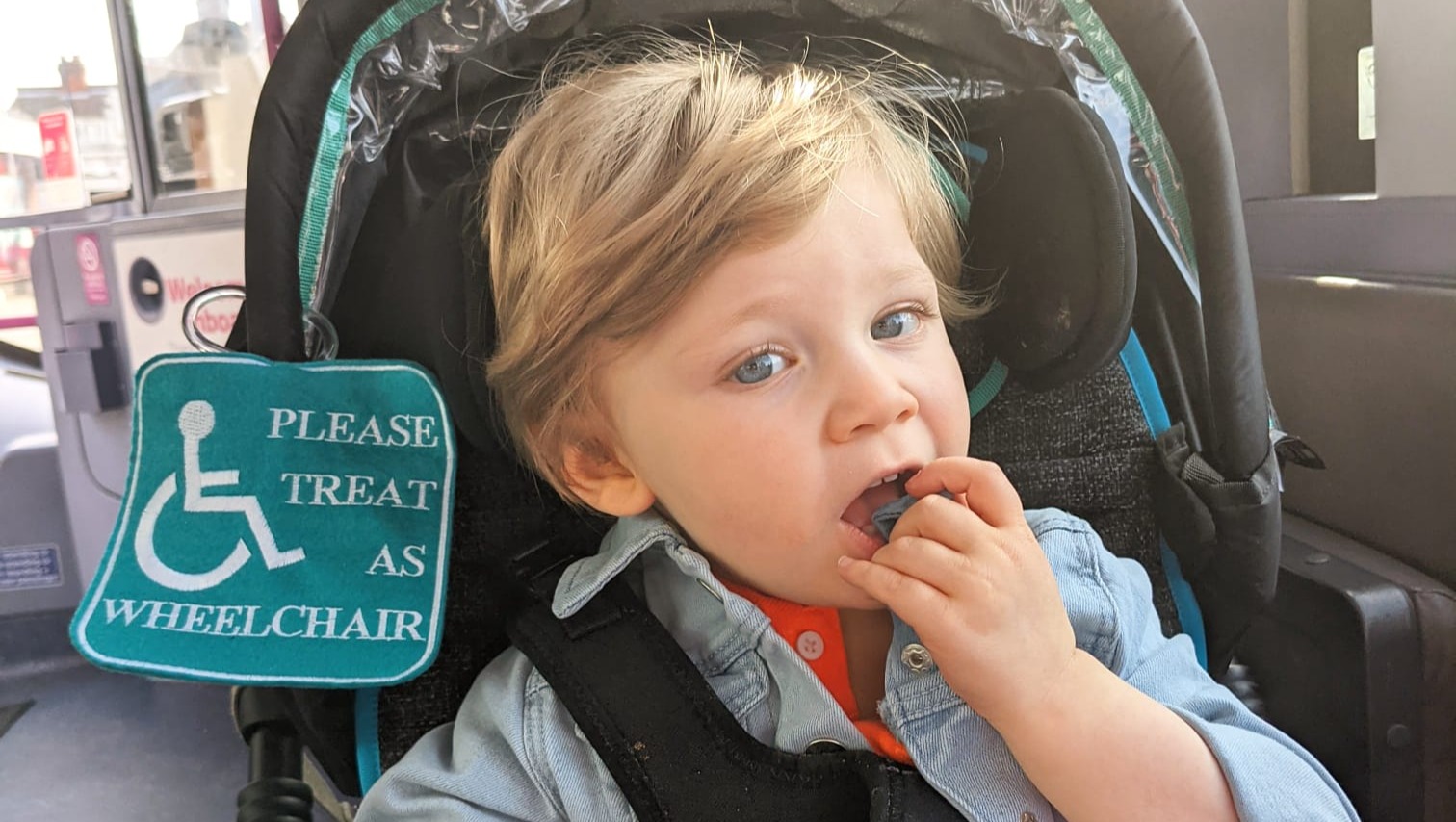
That’s why we have made the tough decision to ask for your help. Like any parent, we will go to the ends of the earth to provide the best possible life for our son, but we and our family members can only do so much. Arizona deserves a shot at experiencing the same joys in life as his non-disabled peers.
Right now, we’re hoping to raise money for:
- Private therapies and equipment from Kids Physio Works, in Essex. For example, a Therasuit could provide extra strength for Arizona when he practices sitting up. Regular hydrotherapy would provide excellent sensory input and help him regulate his emotions better, and we've been recommended that hippotherapy would be very beneficial both physically and mentally
- Music therapy, which has been shown to greatly help communication development in children like Arizona
We would like to raise enough to fund around 6 months’ worth of therapies. We will hold some fundraising events along the way, but we would also be endlessly grateful for any ad hoc contributions you feel able to make. Arizona’s happiness and quality of life are all that matters to us, you’ll never know what your help means to us. Thank you.
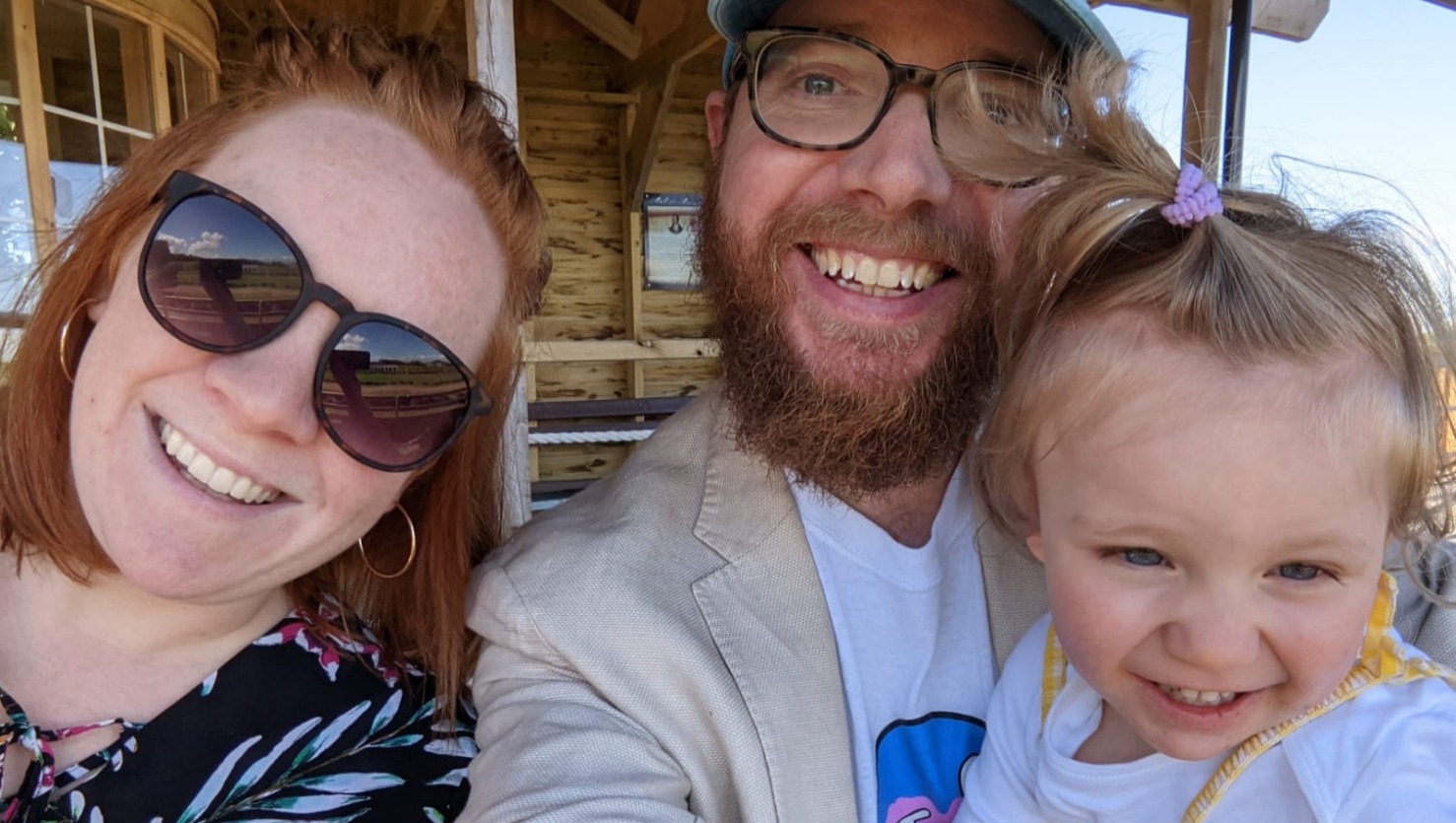
 Organizer
Organizer
Deborah Bates
Organizer
England


